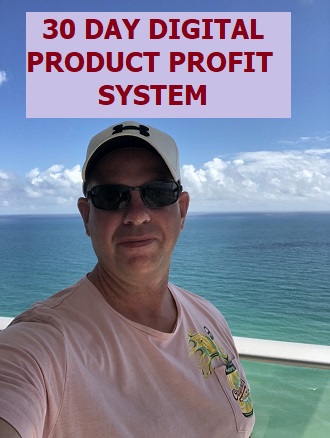As online marketers, we have so many choices in posting and submitting our content these days: blogs, Web2.0 social networking sites, press releases, our own html websites – literally 100’s of choices. It’s not surprising that we have the question – does article marketing still work?
I had the same question, and to be very truthful, I had serious doubts as to whether I would even continue article marketing given the big push toward posting on social networking sites such as Myspace or Facebook not to mention the big advantage of blogging.
Yet, I still get 25% of my traffic and more than 25% of my sales from articles I have written in the past and continue to write today – so it’s not something I can justify dropping. The alternative? Figure out what works today.
After paying special attention to article marketing and performing many detailed tests over the last few months, here’s what I was able to find – and pass along to help you with your online business:
1. GREAT ARTICLES CAN STILL BRING YOU A TON OF TRAFFIC. I’ve had articles that have gotten a few hundred views within ezinearticles.com (example article directory) over a few week time period with a few dozen clicks back to my sites and 0 sales, I’ve also had articles in different niches (health, alternative medicine, marketing) where I’ve had over 1000 views within a few days! In these cases, response did result in many email signups and significant sales. I have one article on PPC marketing that continues to get me dozens of visitors after 2-years of being posted. A warning here — don’t be sucked into thinking that 7 short, crappy, boring articles optimized around a specific keyword will get you the same results as even 1 good quality, well targeted and compelling article. My results and logs show the exact opposite to be true.
Lesson: Spend equal (at least) time to considering your topic, angle and title. You can write one hot article a week and get more results than writing an article each day – think quality not just quantity.
2. OPTIMIZE YOUR ARTICLE AROUND KEYWORD PHRASES ONLY AFTER YOU HAVE A GREAT ARTICLE. I have one single article (again written more than 1 year ago) that brings me hundreds of unique visitors with a 5%+ conversion rate over the last 4-months after I reached first page on Google for popular keyword phrase. For the first month I didn’t understand what was going on until I checked my referral logs and traced back the article to see where the traffic was coming from. I actually went back and added a direct link into the article to my opt-in page to improve results even more. By focusing on writing a compelling article first, then editing for keyword optimization, you avoid writing crappy information only for the sake of keyword optimization which will not work.
3. BE SELECTIVE WITH YOUR ARTICLE SUBMISSION. I can’t prove this to be the case, but I seem to be getting better results submitting to a small number of authority article directories than blasting it out to dozens of article directories. I canceled my article submission account almost one year ago and simply submit to 5 directories now.
In addition to automated submission to directories, provide strategic partners with copies of your articles to post on their high authority blogs or websites – a few of these will improve your ranking substantially as well as suck immediate traffic toward your site.
As an added technique, try some blog posts (on your own blog as well as blogs within your Myspace, Facebook or other social networking blogs) that cover a few paragraphs on your article topic and point back to your article to establish some nice inbound links.
Keep in mind, these are actual test results – not theories. If you would like to experience more practical, real-world, up-to-the-minute internet and information marketing techniques – come see us at InfoMarketer’sZone



Great info, Jeff! The Content Spooling Network article marketing service would be perfect for this strategy — they support submission to the top article directories and also post to related sites & blogs in the network.
http://www.contentspooling.net/csn.php
Great stuff Jeff. Your good content is always appreciated. Would you mind sharing the 5 article directories that you use? I’m sure I could guess 2-3 of them but would like to know what’s already working.
You ‘da man!
Thanks for the info, Jeff! A couple questions:
You encourage posting a good-quality article, and the way I was trained I should write 400-600 words. Now, that’s quite short for a real “article”. When you are writing an article, do you abide by this length, or go longer? Do you make a big distinction between an “article” in this case, and a blog post?
Thanks.
Thanks for the information. Article marketing is a powerful tool when used correctly. I do submit a lot of articles, but I have been wondering if there is a problem with people taking articles without the author’s resource box or people just “stealing” article content for themselves for their own websites and blogs…
Sure – the article directories I use are…
Ezine Articles
Goarticles.com
Articledashboard.com
Articlebase.com
And then – depending on my niche, I submit to one or more of the Yahoo Groups article directories – these are more specific to niche
Hope that helps…
Jeff
Georgia – I am sure that unscrupulous use of articles does take place, yet the fact remains that it is a very powerful tool for getting traffic and SEO ranking so the benefits by far outweigh the risks.
Fact is, theft occurs in all aspects of business – all the more reason to move fast and certain, then the thieves can’t keep up to you.
Jeff
Hi Chris – good point. I don’t pay much attention to the length of a post except to say that I aim for at least one longer, content-rich article each week – something more like 900+ words (often 1200+) where the content looks more substantial. I also write many shorter articles 600 words or less — it’s not really something I focus on, more that I like to have both simple tips-based articles as well as longer content-rich articles.
I write with primarily 3 things in mind…
1. What will intrigue my reading audience right now. To find out, I look at top rated (Digg, Stumbleupon.com, etc…) blog postings to find topics that are in-demand.
2. What will attract publishers. I look for hooks and informational articles that are rich enough to attract fellow publishers so they will post a copy or post links back to my articles.
3. After the article is written, I try and optimize it for at least one keyword phrase (without changing the meaning of the article) – I find it’s easier to add the phrase in than to write the article with the phrase in mind before… but that’s just me.
Jeff